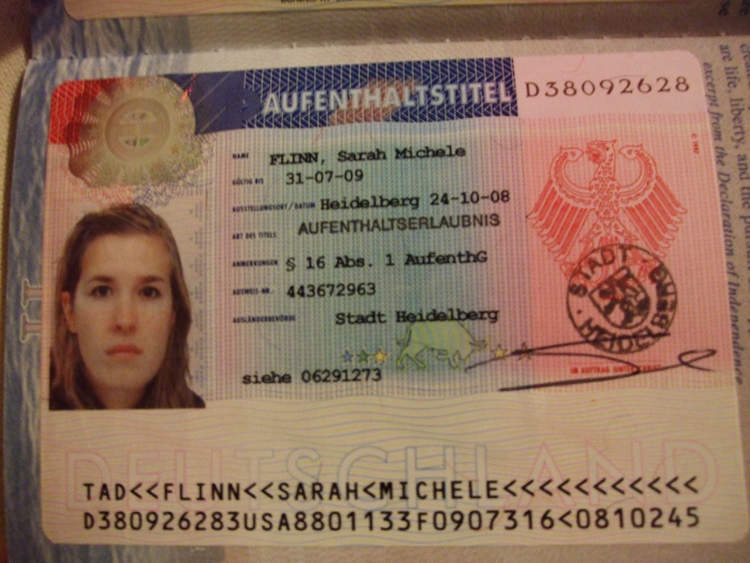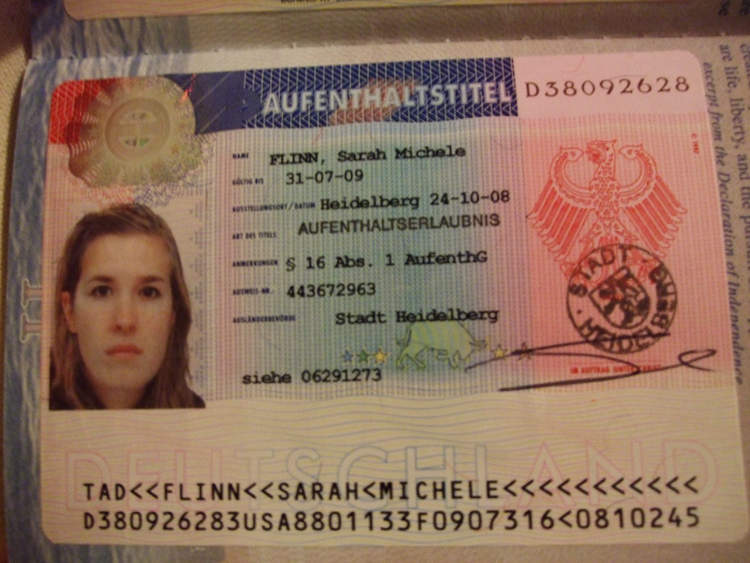Germany is an attractive option for students who want to study abroad; the country offers high-quality education, low tuition fees, and plenty of opportunities for career growth after graduation. Even though there are many advantages to studying in Germany, obtaining a residence permit can be a tricky process.
This guide aims to provide you with all the information you need to know about applying for and obtaining a residence permit when studying in Germany. With the right preparation, paperwork, and legal assistance, you will be able to seamlessly apply for and obtain your residence permit to study in Germany.
Requirements for Obtaining a Residence Permit to Study in Germany
Studying in Germany comes with its unique challenges, one of them being the strict regulations when obtaining a residence permit. To make things easier, here’s a comprehensive guide to obtaining a residence permit to study in Germany.
In order to be granted a residence permit for studying in Germany, international students must meet certain requirements, including providing valid documentation and making sure to follow each step of the process.
What are the requirements?
The following are the requirements for obtaining a residence permit to study in Germany:
- A valid passport or ID card;
- Proof of sufficient financial resources (funds to cover the cost of living);
- Proof of health insurance coverage;
- Proof of support from the study abroad institution (such as a letter or form to be submitted to the German Embassy or Consulate);
- Proof of good academic standing (grades or transcripts);
- Proof of German language proficiency;
- Proof of criminal background check; and
- Proof of Visa and Non-EU residence permit, if applicable.
In addition, many universities also require valid college enrollment documents.
Applying for a German Residence Permit for Study Purposes

A German residence permit is required for international students studying in Germany. It is important to make sure that you are aware of the regulations and requirements to obtain a residence permit for study purposes. This guide provides the essential information you need to know about obtaining a residence permit for study purposes in Germany.
The first step in applying for a residence permit for study purposes in Germany is to prepare all the documents required. This includes:
- Valid passport
- Proof of payment of tuition fees
- Proof of sufficient funds for living expenses
- Confirmation of enrollment or admission letter from the host educational institution
- Valid health insurance coverage
Once you have all the necessary documents prepared, you will need to submit an application form to the foreign office in the region where your educational institution is located. You will also be required to attend an in-person interview, where you will need to provide all the necessary documents and answer questions about your plans for studying in Germany.
Once your application is approved, you will be issued with a residence permit for study purposes. This residence permit will need to be renewed every year, although the process for renewal is much simpler than the initial application. You will need to renew your residence permit at least two weeks before it expires.
It is important to make sure that your residence permit is valid at all times, as it is required for a variety of activities, such as opening a bank account, securing a rental agreement and registering with local authorities.
By following the above steps and taking the time to ensure that all requirements have been met, you can be sure that you will be properly equipped to apply for your residence permit for study purposes in Germany.
Benefits of Obtaining a German Residence Permit for Study Purposes
Studying in Germany is an attractive option for international students who want to pursue their education in a country recognized for its high-quality education. To remain in Germany for longer than 90 days, international students need to get a residence permit.
There are numerous benefits of obtaining a residence permit if you intend to study in Germany. These benefits can provide international students with the opportunity to gain a unique and valuable work experience, as well as access to Germany’s many cultural sites and activities.
Benefits of Obtaining a German Residence Permit for Study Purposes:
- Extended stay in Germany – Unlike a visa, a residence permit allows a student to stay in Germany for an extended period of time. Depending on the student’s qualifications and academic preferences, the residence permit may grant a stay period for up to three years.
- Work opportunities – Obtaining a residence permit can open up many employment opportunities in Germany. Holders of a German residence permit can work a maximum of 10 hours per week while they continue their studies.
- Smooth transition to residency – After completing their studies, residence permit holders have the option to continue living and working in Germany. Residence permit holders can apply for a residence title that grants long-term residence privilege.
- Cultural excursions – Germany is filled with cultural excursions that residence permit holders may take advantage of. Residence permit holders have the opportunity to explore the different regions of Germany and attend events, such as music and theater festivals.
With the benefits mentioned above, obtaining a residence permit for study purposes in Germany is definitely a worthwhile opportunity. Interested international students are encouraged to research further into the processes and requirements for getting a residence permit.
Conclusion
Studying in Germany is an attractive prospect for many students around the world due to its high quality education, vibrant culture, and unbeatable cost of living. With this guide, you now have a better understanding of the residence permit requirements and processes for international students and are better equipped to apply for a residence permit to study in Germany.
Remember that your success in obtaining a residence permit hinges mostly on your ability to adhere to all stated regulations and requirements while demonstrating that you have the means and intent to stay in Germany. Ultimately, being proactive and patient is key in the application process.




